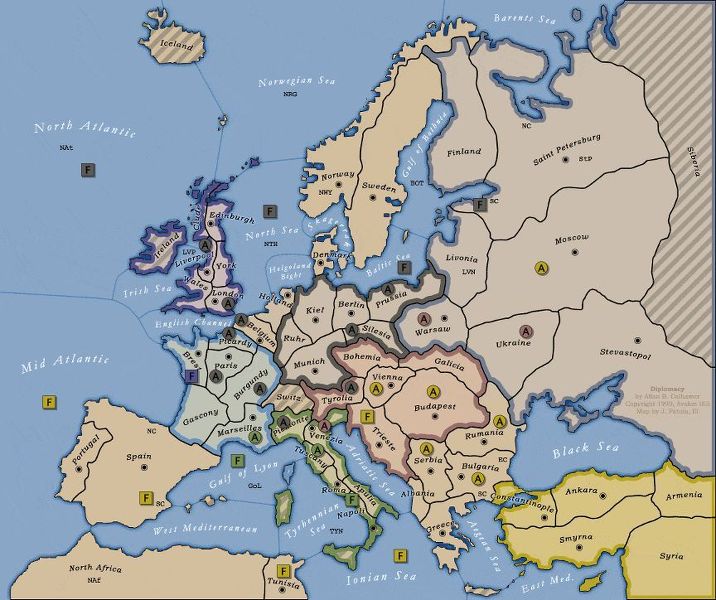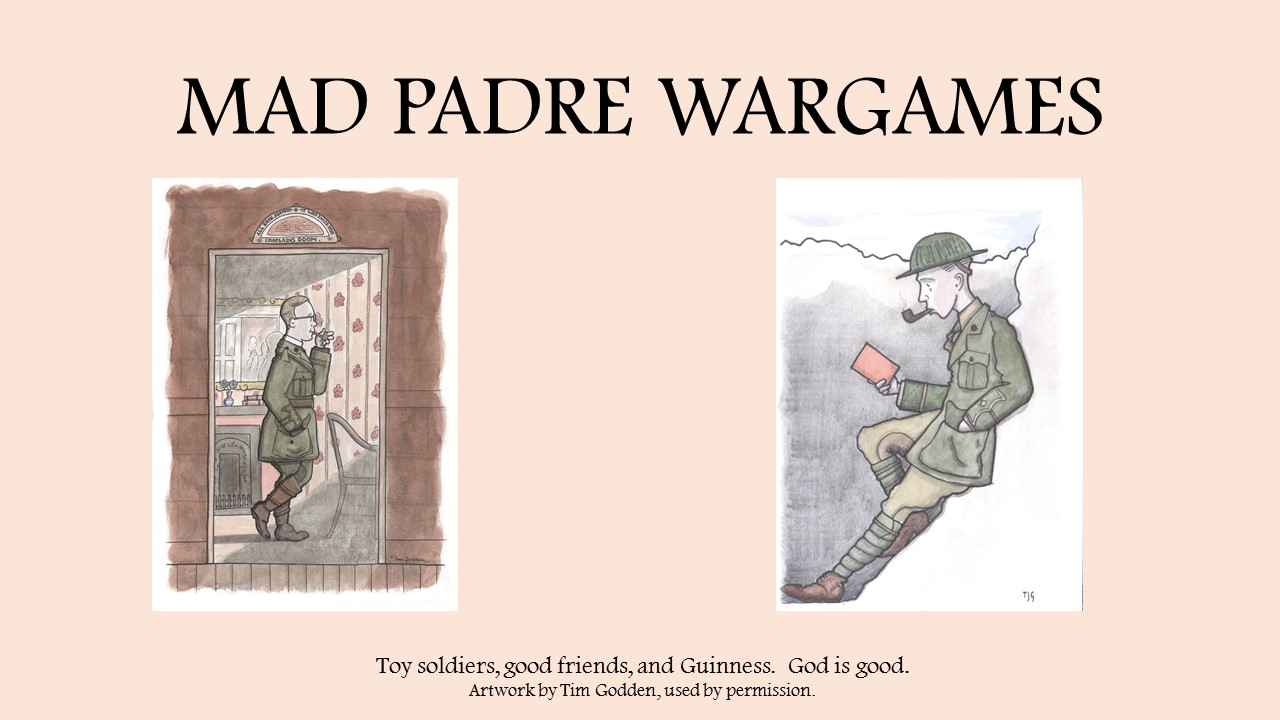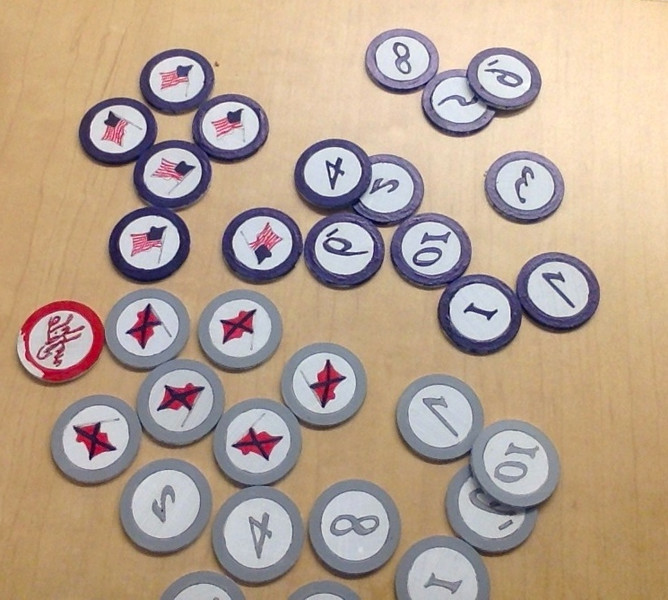Hello again Diplomacy fans. Our 2016 game is now at an exciting end phase as the two superpowers, Turkey and Germany, grapple for dominance. Startling amid the Falll 1907 moves was Turkley’s patronage of the sole surviving English unit to drive the German army out of Brest, keeping England in the game.
Germany’s Austrian ally is now an army in exile, as all of its supply centres have been overrun by Turkey. Italy struggles to survive, keeping its toehold in the south of France but losing Spain and Tunis to its sometime protector and sometime predator, Turkey
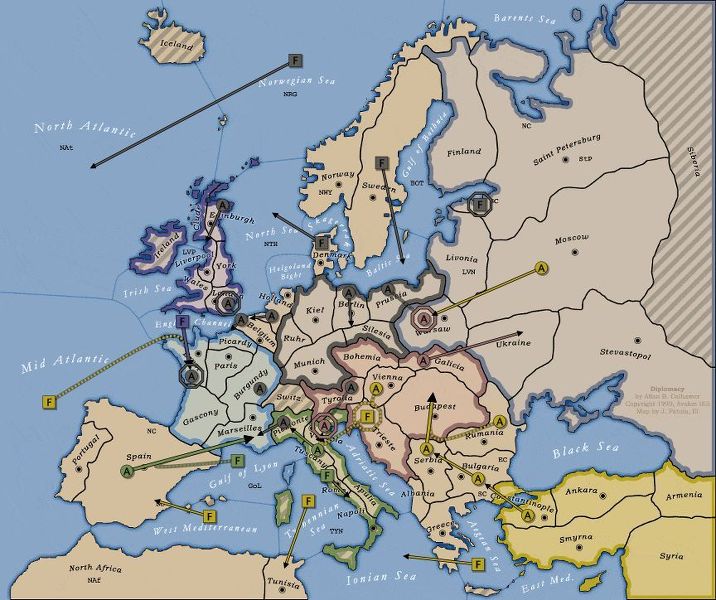
Fall 1907 Moves:
Results for Fall, 1907 (Movement)General Notices:Order resolution completed on 24-Jun-2016 at 22:01:04 EDTOrder Results:Austria:A gal - ukrA ven HoldsA war HoldsEngland:F eng -> breGermany:No order for unit at Burgundy. Hold order assigned.A bel - pic; A ber - sil;A bre Holds Dislodged from eng (2 against 1).A bur Holds; F den - nth; A edi - lvp; A hol - bel; A lon HoldsF nwg - nao; A pie - mar Bounced with spa (1 against 1).A pru Supports A war; F stp/sc Holds; F swe - bal; A tyr Supports A venItaly:F lyo Supports A spa - mar; F rom - napA spa - mar; A tus - pieFailed because Germany: A pie - mar failed.Turkey:F aeg - ion; A bul - ser; A con -bulF mao Supports F eng - bre; A mos -war Bounced with war (1 against 2).A rum Supports A ser - bud; A ser - budF tri Supports A tus - venSupport failed. Supported unit's order does not match supportgiven.F tys -tun; A vie Supports F tri; F wes - spa/sc
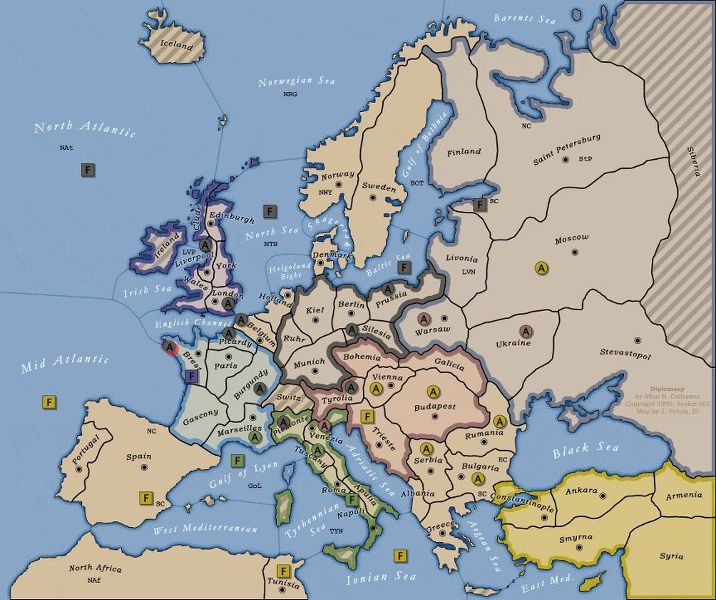
And here are the results. Germany, Italy and Austria all have to remove a unit, while Turkey gains another three, thus vaulting into first place with 15 Supply Centres to Germany’s 13. Still a horse race, but the Kaiser must be feeling the pressure now.
Results for Fall, 1907 (Retreat)
General Notices:
Order resolution completed on 29-Jun-2016 at 19:46:54 EDT
Order Results:
Austria:
Supply centers were lost. Units that must be removed: 1.
England:
Germany:
Supply centers were lost. Units that must be removed: 1.
Germany: A bre -> par
Italy:
Supply centers were lost. Units that must be removed: 1.
Turkey:
Supply centers were gained. Units that may be built: 3.
Supply Center Ownership:
Austria: Venice, Warsaw (2 total).
\England: Brest (1 total)
.France: None.
Germany: Belgium, Berlin, Denmark, Edinburgh, Holland, Kiel, Liverpool, London, Munich, Norway,
Paris, St. Petersburg, Sweden (13 total)
.Italy: Marseilles, Naples, Rome (3 total).
Russia: None.
Turkey: Ankara, Budapest, Bulgaria, Constantinople, Greece, Moscow, Portugal,
Rumania, Serbia, Sevastopol, Smyrna, Spain, Trieste, Tunis, Vienna (15 total).
Adjustments:
Austria: 2 supply centers, 3 units. 1 unit must be removed.
England: 1 supply center is, 1 unit. No units to build or remove.
France: No supply centers are, No units. No units to build or remove.
Germany: 13 supply centers, 14 units. 1 unit must be removed
Italy: 3 supply centers, 4 units. 1 unit must be removed.
Russia: No supply centers are, No units. No units to build or remove.
Turkey: 15 supply centers, 11 units. 3 units may be built.
